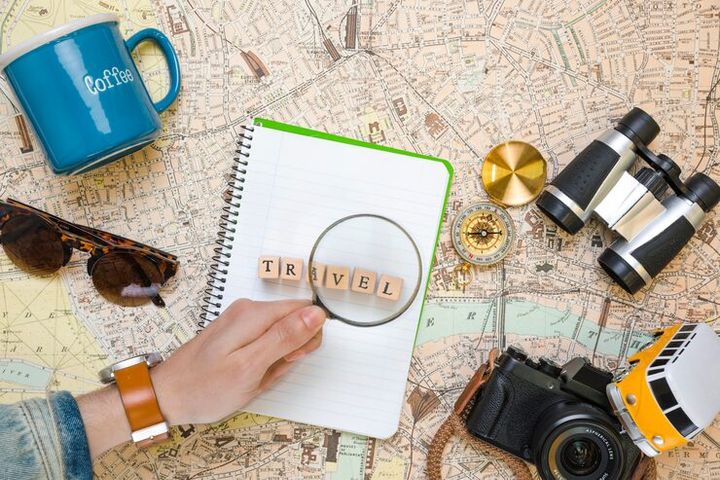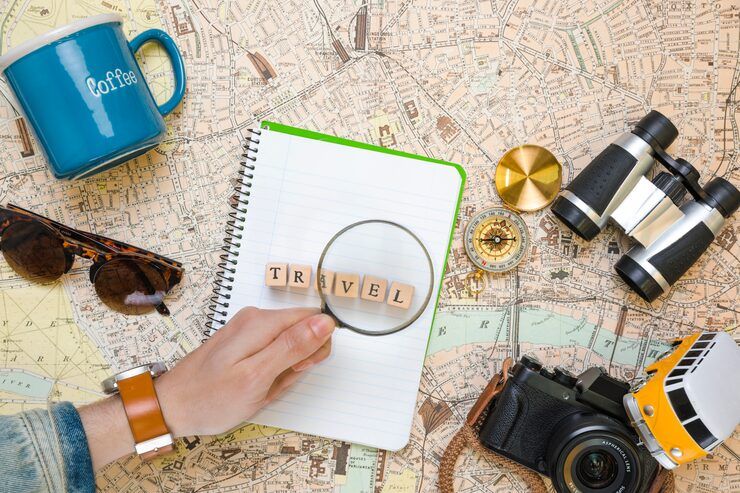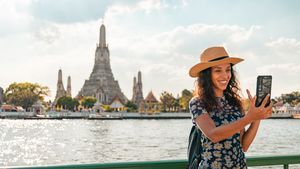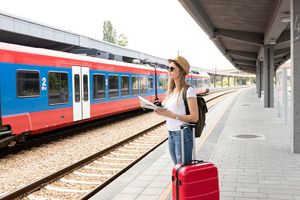
Explore Stress-Free Travel: Tips, Advice, and Insights for Hassle-Free Journeys
Travel is a rewarding experience, whether it’s for leisure, work, or family visits. However, it can also bring challenges such as flight delays, lost luggage, visa issues, or health concerns. Stress-free travel refers to the proactive planning, organization, and mindset that help minimize unexpected issues and make journeys smoother and more enjoyable.
With the increasing availability of travel apps, digital bookings, and improved infrastructure, travelers now have more tools than ever to reduce stress. The idea is not just about luxury or convenience—it's about being prepared and informed before, during, and after a trip.

Why stress-free travel matters today
In today’s fast-paced world, millions of people travel across borders and cities for various reasons. The rise of remote work, global tourism, and budget-friendly transport options has increased the frequency of travel for all age groups.
Why it matters:
-
Travel disruptions such as delayed flights, lost documents, or language barriers can cause stress and anxiety.
-
Lack of preparation often leads to unforeseen expenses, missed connections, or safety issues.
-
Post-pandemic travel concerns, such as health protocols, continue to affect how we plan and execute trips.
Who is affected?
-
Solo travelers
-
Families with children
-
Seniors or those with medical needs
-
Business travelers with tight schedules
-
Students or first-time international tourists
Common problems stress-free travel planning helps avoid:
-
Missed bookings or check-ins
-
Confusing visa or entry rules
-
Overpacking or underpacking
-
Unreliable internet or payment access abroad
-
Emotional fatigue from rushed or chaotic itineraries
Recent updates in travel trends and practices
Travel in the past year has continued to evolve, especially with the help of technology and better regulations. Key updates include:
| Trend | Description |
|---|---|
| AI-powered travel planning | Platforms like Google Travel and Hopper now use AI to suggest itineraries, predict prices, and avoid peak travel times. |
| Sustainable travel choices | More travelers are selecting eco-friendly options, such as trains over planes, carbon-offset programs, or local stays. |
| Biometric security checks | Airports in the U.S., Europe, and Asia have expanded facial recognition systems for faster, touch-free boarding (e.g., Amsterdam Schiphol, June 2024). |
| Flexible ticket policies | Airlines and hotels increasingly offer free date changes or cancellations due to ongoing uncertainty in international travel. |
| Remote work tourism | Digital nomads are choosing destinations like Portugal, Thailand, and Colombia with supportive visa programs (2025 updates reflect broader eligibility). |
Travelers are also showing preference for non-peak seasons, contactless check-ins, and travel insurance that includes health coverage.
Travel laws, policies, and regulations to consider
Traveling across borders requires awareness of local laws and global policies. Each country has its own entry requirements, transportation regulations, and safety procedures that can impact a journey.
Examples of policies affecting travelers:
| Region | Regulation | Description |
|---|---|---|
| EU | ETIAS (starting mid-2025) | EU-bound travelers from visa-exempt countries will need to apply for an ETIAS authorization before entry. |
| USA | TSA PreCheck/Global Entry | Pre-approval systems to speed up airport security for U.S. travelers. Updated fees and faster processing introduced in 2024. |
| Asia | Visa-free or visa-on-arrival expansions | Countries like Japan and Indonesia have expanded their visa waiver programs to boost tourism. |
| Global | COVID-19 health entry rules | Some regions still require proof of vaccination or health declarations (e.g., parts of Southeast Asia and South America). |
| Customs policies | Vary by country—travelers must be aware of prohibited items, duty-free limits, and electronic device checks. |
It is important to check embassy websites or official travel advisories before departure to avoid last-minute surprises.
Tools and resources for a smoother travel experience
Numerous digital tools and services can help reduce stress throughout every phase of travel. These include booking platforms, planning apps, health tools, and local assistance services.
Booking and itinerary planning:
-
Google Travel – Integrates flight, hotel, and activity recommendations
-
TripIt – Organizes travel plans in one timeline
-
Skyscanner / Kayak – For price comparisons and alerts
Travel safety and health:
-
Smart Traveler Enrollment Program (STEP) – U.S. citizens register their trip to receive safety updates from embassies
-
CDC Travel Health Tool – Country-specific health advisories
-
AirHelp – Helps travelers claim compensation for delays or cancellations
Navigation and language:
-
Google Maps – Real-time transit, walking directions
-
Rome2Rio – Multi-modal route planning worldwide
-
Google Translate – Offline translation for 100+ languages
Packing and currency management:
-
PackPoint – Generates a customized packing checklist
-
XE Currency – Tracks exchange rates and conversions
-
TravelSpend – Manages trip budgets and expenses
Local experience and support:
-
Withlocals – Personalized tours by locals
-
Couchsurfing / Hostelworld – Affordable accommodation options
-
AllTrails – Trail maps and hiking guides worldwide
Using even a few of these tools can significantly reduce planning time, costs, and the chances of error.
Frequently Asked Questions
1. How can I avoid airport stress during busy seasons?
Arrive early (at least 2–3 hours before international flights), check in online, pack light, and use airport apps to monitor gate changes and delays. Consider programs like TSA PreCheck or Priority Pass.
2. What are the most important items to pack for a stress-free trip?
Essential items include valid ID/passport, travel insurance, local SIM card or portable Wi-Fi, chargers/adapters, prescription medications, and a list of emergency contacts.
3. Is travel insurance necessary?
Yes, especially for international trips. Travel insurance covers medical emergencies, cancellations, lost baggage, and other unexpected costs. Many countries now require proof of insurance for entry.
4. How can I stay connected without high roaming charges?
Buy a local SIM card upon arrival, use an international eSIM (e.g., Airalo), or rely on public Wi-Fi with a VPN for secure access.
5. What should I do if I miss a flight or lose my luggage?
Immediately contact airline staff for rebooking options. File a lost baggage report and keep documentation. If insured, contact your provider for reimbursement steps.
Simple travel tips for smoother journeys
| Tip Category | Recommendations |
|---|---|
| Before travel | Confirm visa requirements, upload important documents to the cloud, notify your bank of travel plans |
| During travel | Stay hydrated, keep valuables in carry-on, have local currency ready for small expenses |
| At destination | Learn basic local phrases, be aware of cultural etiquette, use maps or travel apps for safe navigation |
| For digital safety | Use two-factor authentication, avoid public Wi-Fi for banking, and back up travel documents online |
Final thoughts
Travel can be one of the most enriching and memorable experiences in life, but without the right preparation, it can quickly become stressful. By understanding current travel practices, being aware of legal requirements, using the right digital tools, and preparing mindfully, travelers can reduce stress and enjoy their journeys with greater confidence and peace of mind.










